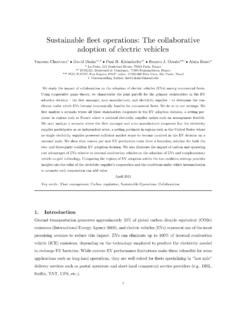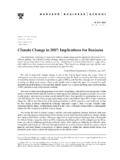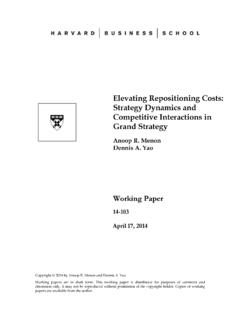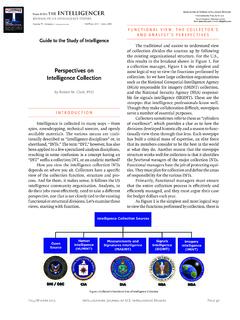Transcription of Personality Traits of Entrepreneurs: A Review of Recent ...
1 Personality Traits of Entrepreneurs: A Review of Recent Literature Sari Pekkala Kerr William R. Kerr Tina Xu Working Paper 18-047. Personality Traits of Entrepreneurs: A Review of Recent Literature Sari Pekkala Kerr Wellesley College William R. Kerr Harvard Business School Tina Xu Wellesley College Working Paper 18-047. Copyright 2017 by Sari Pekkala Kerr, William R. Kerr, and Tina Xu Working papers are in draft form. This working paper is distributed for purposes of comment and discussion only. It may not be reproduced without permission of the copyright holder.
2 Copies of working papers are available from the author. Personality Traits of Entrepreneurs: A Review of Recent Literature Sari Pekkala Kerr, Wellesley College William R. Kerr, HBS & NBER. Tina Xu, Wellesley College November 2017. Abstract: We Review the extensive literature since 2000 on the Personality Traits of entrepreneurs. We first consider baseline Personality Traits like the Big-5 model, self-efficacy and innovativeness, locus of control, and the need for achievement. We then consider risk attitudes and goals and aspirations of entrepreneurs.
3 Within each area, we separate studies by the type of entrepreneurial behavior considered: entry into entrepreneurship, performance outcomes, and exit from entrepreneurship. This literature shows common results and many points of disagreement, reflective of the heterogeneous nature of entrepreneurship. We label studies by the type of entrepreneurial population studied ( , Main Street vs. those backed by venture capital) to identify interesting and irreducible parts of this heterogeneity, while also identifying places where we anticipate future large-scale research and the growing depth of the field are likely to clarify matters.
4 There are many areas, like how firm performance connects to entrepreneurial Personality , that are woefully understudied and ripe for major advances if the appropriate cross-disciplinary ingredients are assembled. Key Words: Entrepreneurs, venturing, Personality Traits , characteristics, Big-5, risk attitudes, success, goals, demographics, skills JEL Codes: L26; D03, D81, D86, M13, O30. Acknowledgements: Comments are appreciated and can be sent to This research is generously supported by the Alfred P. Sloan Foundation, the Kauffman Foundation, the National Science Foundation, the Smith Richardson Foundation, and Harvard Business School.
5 William Kerr is a Research Associate of the Bank of Finland and thanks the Bank for hosting him during a portion of this project. 1. Table of Contents Introduction 1. Personality Traits Prevalence of characteristics in entrepreneurs vs. other populations Big-5 model Self-efficacy and innovativeness Locus of control Need for achievement Correlation of Personality Traits with venture phases Probability of entry into entrepreneurship Growth and success as an entrepreneur Probability of exiting entrepreneurship Moderating Traits and environmental factors 2.
6 Risk attitudes Methods of measuring risk attitudes Risk attitudes of entrepreneurs vs. other populations Effect of risk attitudes in the startup process Probability of entry into entrepreneurship Growth and success as an entrepreneur Probability of exiting entrepreneurship Entrepreneurial self-efficacy, risk attitudes, and optimism 3. Goals and aspirations Reasons for deciding to start a business Entrepreneurial goals 4. Conclusions Appendix. Other characteristics of entrepreneurs Demographics Financial assets and wealth Industry experience and education Entrepreneurial regions Online Appendix.
7 Detailed survey methodologies and study notes A: Summary tables of studies by topic B: Typical Big-5 inventory utilized in entrepreneurship studies C: Representative examples of survey questions and measures related to risk attitudes 2. Introduction Entrepreneurial firms and the founders behind these ventures are in vogue everywhere. Cities across the United States are sprouting new incubators and accelerators and introducing programs to attract innovative talent. Foreign countries are also quite active, with nations ranging from China to Chile experimenting in new ways to foster new firm formation.
8 The fascination with entrepreneurs is not brand new, of course, and a literature dating to the 18th century explores what drives entrepreneurs and whether their Traits matter for the outcomes of their ventures. This literature now spans many fields and has introduced multiple concepts and methods related to the analysis of entrepreneurial characteristics. In this Review , we collect and organize the latest findings on the prevalence of various Personality Traits among the entrepreneurial population and their impact on venture performance. We cover academic work ranging from economics to psychology to management studies, with a focus on studies published after 2000.
9 Many studies consider the Traits of entrepreneurs or the Traits that make entrepreneurs successful. As stebro et al. (2014) highlight, the publication in 1921 of Frank Knight's book Risk, Uncertainty and Profit marked a key launching point into rigorous and careful research on the personalities of entrepreneurs that set them apart from general business managers. In the decades that followed, research has continued to investigate specific individual Traits that prompt people to become entrepreneurs, as well as personal motivations and preferences that keep entrepreneurs on their chosen path.
10 These studies have often focused on high-growth settings or firms financed by venture capital (VC), where entrepreneurs face a high probability of their business failing, a very small probability of extremely positive outcomes, and a possibly low average return to the monetary and time investments made into their businesses. Standard economic theory must be augmented to explain such a pursuit, and many scholars have tried to understand the homo entreprenaurus (a moniker introduced by Uusitalo, 2001). Yet, the term entrepreneur is also applied in academic research to many groups beyond the founders of Silicon Valley startups.













